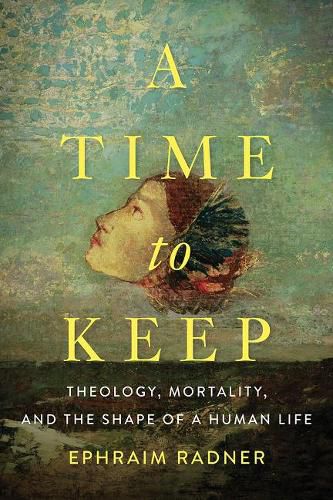Readings Newsletter
Become a Readings Member to make your shopping experience even easier.
Sign in or sign up for free!
You’re not far away from qualifying for FREE standard shipping within Australia
You’ve qualified for FREE standard shipping within Australia
The cart is loading…






This title is printed to order. This book may have been self-published. If so, we cannot guarantee the quality of the content. In the main most books will have gone through the editing process however some may not. We therefore suggest that you be aware of this before ordering this book. If in doubt check either the author or publisher’s details as we are unable to accept any returns unless they are faulty. Please contact us if you have any questions.
The miracle of birth and the mystery of death markhuman life. Mortality, like a dark specter, looms over all that lies in between. Human character, behavior, aims, and community are all inescapably shaped by this certainty of human ends. Mortality, like an unwanted guest, intrudes, becoming a burden and a constant struggle. Mortality, like a thief who steals, even threatens the ability to live life rightly. Life is short. Death is certain. Mortality, at all costs, should be resisted or transcended. In A Time to Keep Ephraim Radner revalues mortality, reclaiming it as God’s own. Mortality should notbe resisted butreceived. Radner reveals mortality’s true nature as a gift, God’s gift, and thus reveals that the many limitations that mortality imposes should be celebrated. Radner demonstrates how faithfulnessaand not resignation, escape, denial, redefinition, or excessais the proper response to the gift of humanity’s temporal limitation. To live rightly is to recognize and then willingly accept life’s limitations. In chapters on sex and sexuality, singleness and family, education and vocation, andapanoply of end of life issues, A Time to Keep plumbs the depths of the secularimagination, uncovering the constantstrugglewith human finitudein its myriadforms. Radner shows thatby wrongly positioningcreaturely mortality, these parts of human experience havereceivedan inadequate reckoning. A Time to Keep retrieves the most basic confession of the Christian faith, that life is God’s, which Radner offers as grace, asthe basis for a Christian understanding of human existence bound by its origin and telos. Thepossibilityand purposeof what comes between birth and deathisorderedby the pattern of Scripture,but isperformed faithfully onlyin obedience to thelimits that bind it.
$9.00 standard shipping within Australia
FREE standard shipping within Australia for orders over $100.00
Express & International shipping calculated at checkout
This title is printed to order. This book may have been self-published. If so, we cannot guarantee the quality of the content. In the main most books will have gone through the editing process however some may not. We therefore suggest that you be aware of this before ordering this book. If in doubt check either the author or publisher’s details as we are unable to accept any returns unless they are faulty. Please contact us if you have any questions.
The miracle of birth and the mystery of death markhuman life. Mortality, like a dark specter, looms over all that lies in between. Human character, behavior, aims, and community are all inescapably shaped by this certainty of human ends. Mortality, like an unwanted guest, intrudes, becoming a burden and a constant struggle. Mortality, like a thief who steals, even threatens the ability to live life rightly. Life is short. Death is certain. Mortality, at all costs, should be resisted or transcended. In A Time to Keep Ephraim Radner revalues mortality, reclaiming it as God’s own. Mortality should notbe resisted butreceived. Radner reveals mortality’s true nature as a gift, God’s gift, and thus reveals that the many limitations that mortality imposes should be celebrated. Radner demonstrates how faithfulnessaand not resignation, escape, denial, redefinition, or excessais the proper response to the gift of humanity’s temporal limitation. To live rightly is to recognize and then willingly accept life’s limitations. In chapters on sex and sexuality, singleness and family, education and vocation, andapanoply of end of life issues, A Time to Keep plumbs the depths of the secularimagination, uncovering the constantstrugglewith human finitudein its myriadforms. Radner shows thatby wrongly positioningcreaturely mortality, these parts of human experience havereceivedan inadequate reckoning. A Time to Keep retrieves the most basic confession of the Christian faith, that life is God’s, which Radner offers as grace, asthe basis for a Christian understanding of human existence bound by its origin and telos. Thepossibilityand purposeof what comes between birth and deathisorderedby the pattern of Scripture,but isperformed faithfully onlyin obedience to thelimits that bind it.